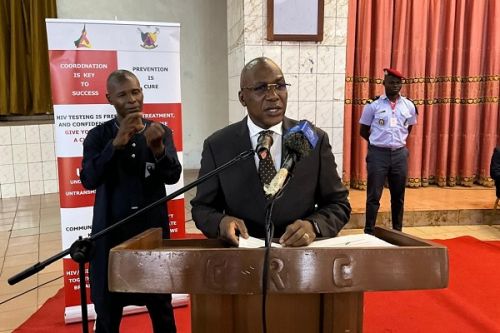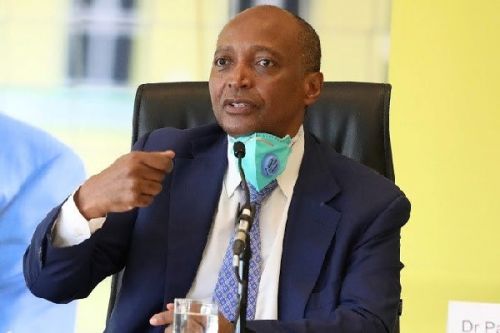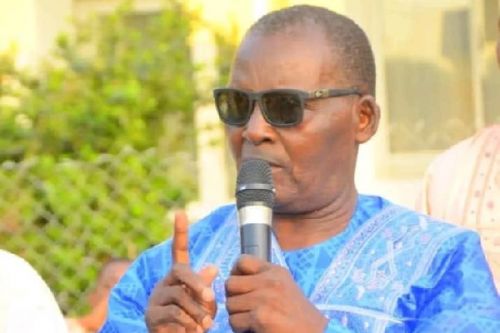The March parliamentary session, which opened on March 5, will reach a significant milestone in the coming days with the election of new leadership for both the Senate and the National Assembly. The stakes are high for the elections of the two incumbent Speakers in both chambers. Aged 89 and President of the Senate since 2013, Marcel Niat Njifenji often appears frail and delegates the leadership of plenary sessions to his Vice-President. Many observers and some members of the ruling party are calling for a change in leadership at the head of the upper house.
In the National Assembly, the age of Cavaye Yéguié Djibril, 84, the "Very Honorable" Speaker since 1992, is not the only point of contention. The accumulation of scandals linked to his management of the chamber has led to harsh criticism and calls for his replacement.
Missed Opportunity
After a year marked by scandals and internal strife, Cavaye Yéguié Djibril, the President of the National Assembly of Cameroon, attempted to reposition himself on the political scene by organizing a meeting in his stronghold of the Far North. However, he did not count on the intervention of the Presidency of the Republic, which simply canceled the event.
The meeting, scheduled for February 14 in Maroua, was to focus on the theme of the fight against famine in the northern part of Cameroon. Cavaye Yéguié Djibril, an influential figure in the ruling CPDM party, had invited all the political and administrative elite of the three northern regions. However, a letter from the Secretary General of the Presidency of the Republic, dated February 9, put a damper on the preparations. The letter informed that the Head of State, Paul Biya, had instructed the pure and simple cancellation of the meeting. Cavaye Yéguié Djibril then announced the postponement of the meeting to "a later date."
Confusion
The situation illustrates the delicate position the speaker of the national assembly finds himself in. A further example is his inability to control the members of parliament and the disorder that reigns within the institution.
In her opening speech for the March session, the oldest member of parliament, Koa Mfegue, revealed chronic absenteeism among MPs and a toxic atmosphere marked by "intrigue, snitching, slanderous denunciations often via social media, power struggles, profiteering and the unbridled pursuit of money." In response, the president of the Republican Front, Aloys Parfait Mbvoum, noted that the dean's criticisms are not new, while Cabral Libii, MP for the PCRN, denounced her "mischievousness."
One of the Ruling party’s MP speaking on condition of anonymity expressed his frustration and discouragement with a "general malaise" and "injustices." The latter cited the perennial problem of insurance, the manipulation of foreign missions, the refusal to purchase 4x4 vehicles for all MPs, and the fragmentation of the budget for the MPs' hotel as the reasons why sessions are boycotted.
Speaker Cavaye Yéguié himself has repeatedly decried the absenteeism of MPs, without success. This situation illustrates the little control he now has over the institution.
Repeated scandals
The Cameroon National Assembly is plagued by a series of scandals that are tarnishing the image of the institution and raising questions about its governance. Journalist and political analyst Njiki Fandono believes these battles reflect the waning influence of Cavaye Yéguié Djibril, 84 years old and Speaker of the National Assembly for 32 years.
Since the start of the current legislature in March 2020, three secretaries-general have been appointed and dismissed. Geoffrey Désiré Mbock was suspended a year after his appointment. Gaston Komba was dismissed after a disagreement with the Speaker over the management of the staff insurance policy. Also, André Noël Essian was appointed after a long two-year interim, following an administrative imbroglio surrounding the replacement of the Speaker's chief of staff.
In November 2023, a leaked document revealed that Cavaye Yéguié Djibril had decided to part ways with his chief of staff, Boukar Abdourahim. A new chief of staff was even appointed and his name was read on the airwaves of CRTV, the public audiovisual channel. However, a few hours later, another document signed by the same Speaker denied the first one. Ultimately, Boukar Abdourahim was not replaced and six months later, the identity of the signatory of the first document remains a mystery.
Physically unfit?
According to the political analyst quoted above, all this demonstrates "the physical and somatic unfitness of the President of the National Assembly to take on such exhausting duties." According to him. "These things should never have happened."
In addition to this administrative mess, the financial management of the company is murky, to say the least. In 2023, sources reveal that the National Assembly has accumulated a debt of over XAF22 billion. The debt was so outstanding that deputy quaestor Abba Kabbir Kamsouloum had to alert the President of the National Assembly. "The fundamental question is that of the President's inoperability. We get the impression that the current president is unable to carry out his duties in the running of this institution," says political analyst Aristide Mono, for whom "we're beginning to question the appropriateness and validity of his 'eternity' at the head of this institution".
"Beyond the republican elegance that suggests there should be some turnover at the head of institutions, there is no real problem with the question of whether or not to keep the current President of the National Assembly.” The issue is his efficiency and ability to manage the institution, he explains.
Aloys Parfait Mbvoum believes that there is little to expect from a new president under the same political system. He asks, "Will a new president bring more visibility, more work, more commitment, and more accountability?" According to him, "no profile belonging to the CPDM (the ultra-majority ruling party in the House) can shake things up. What is needed is a political electroshock." He also deplores the fact that the CPDM's obese majority does not allow for the free choice of a Speaker of the National Assembly. In practice, the elected members of the ruling party are summoned to the party headquarters a few hours before the scheduled vote. The Secretary-General communicates to them the names of the members of the bureau to be voted for, as they come out of an envelope from the Presidency of the Republic.
However, it should be noted that, according to several observers, it is unlikely that such a significant change as replacing the "Very Honorable" after 32 years at the helm could occur one year before the end of the current legislature.
L.A.














